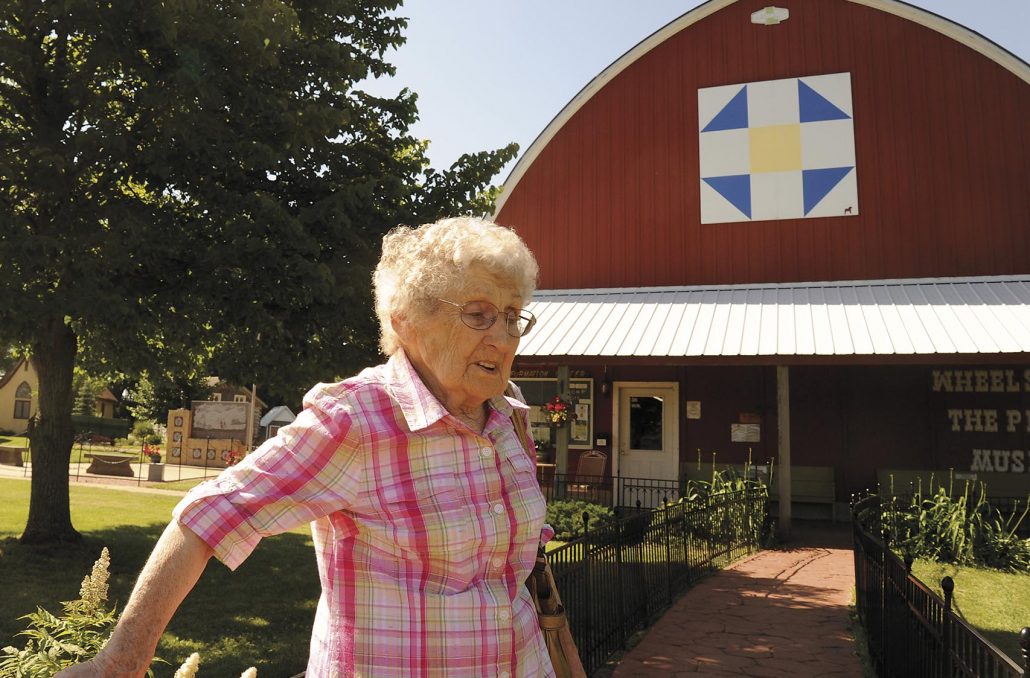
Saturday open house to dedicate ‘Pamp Barn’
By Seth Schmidt
My memory isn’t very good any more,” Dorthey Pamp demurred, when asked about the open house planned at the Wheels Across the Prairie Museum Saturday.
Then the 91-year-old related, in precise detail, how she got involved as a museum volunteer five decades ago.
“It all started out with Tracy’s Centennial,” the Tracy woman relates. “I had nothing to do with Box Car Days and other doings in town then. But everyone knew that my great-grandfather had been one of the first homesteaders around here, so Merrill Starr came out and asked if I would come to a meeting to help plan the Centennial. They wanted someone from each township. There weren’t many people at the meeting so I was elected vice chair, and Mary Lou (Ludeman) was elected chair.”
The Centennial committee, it turned out, would plant the first seeds for the Wheels museum, which today is one of Tracy’s most recognized landmarks.
“We had no idea it would become what it is today. I thought maybe it would go back to being a sheep pasture,” Pamp smiled.
The Saturday open house will dedicate the “Pamp Farm Barn,” (formerly known as “The Car Barn,”) honoring Dorthey and her late husband, Bill, who also was a longtime museum volunteer.
Free root beer floats will be served. The public is invited.
“Both Dorthey and Bill have done so much for the museum,” said Jon Wendorff, museum board president.
Dorthey Pamp is the last surviving founder of the Wheels museum.
After collecting artifacts for the Tracy centennial (and the nation’s bicentennial) celebration in 1976, Pamp and other local history buffs decided to establish a permanent Tracy museum. The Wheels museum opened in June of 1985 after the construction of a two-story barn replica, on land donated by Andrew and Marty Wixon. Many additions followed, including a 1915 steam engine and freight train, a railroad depot, country school, 19th century log cabin, the Monroe Town Hall, St. Mark’s Episcopal Church, a summer kitchen, blacksmith shop, a Norwegian hut, the Amiret Post Office and innumerable farm machinery displays.
“It was one thing after another,” Pamp reflected.
For more on this article, see this week’s Headlight-Herald.
